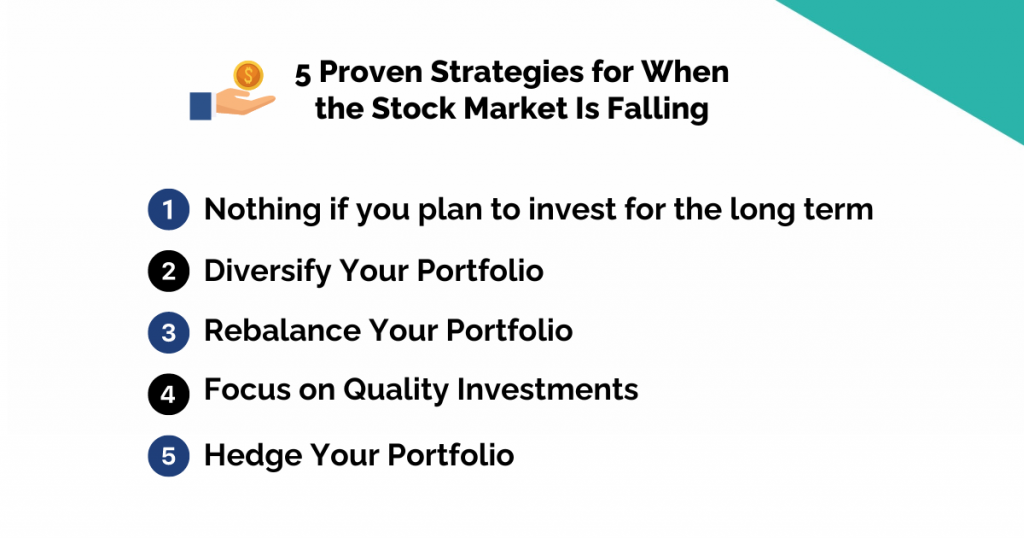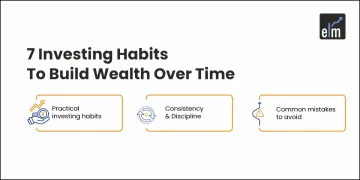Should I pull my money from the stock market? is a question that you might find yourself asking, or your financial advisor if you have one, when the stock market declines and the value of your portfolio falls noticeably.
While that makes sense, it’s probably not the wisest course of action. Maybe you should be asking yourself, “What should I not do?” instead.
When the stock market crashes, it also affects your investments, regardless of how well you plan. Many experts provide a list of things to have on hand in case the stock market crashes, but what happens next?
Few specialists have provided a list of infallible solutions. When stock prices rise again, not everyone is patient or financially sound, and the pressure to perform well is quite real in these circumstances.
Taking a deep breath and calming down would be a good place to start. Next, you should review the checklist below, which will assist you know what to do in the event that the stock market crashes.
Top 5 Proven Strategies for Stock Market Crashes
Here are some Strategies for Stock Market Crashes that can help you understand the market better:

1. Nothing – If You Plan to Invest for the Long Term
If you are a long-term investor, the best course of action is to do nothing. A long-term investor is less concerned about the state of the stock market crash because they are not severely impacted by it.
The stock market’s volatility is the straightforward cause of this; even if it is currently collapsing, it will rise dramatically over the next few days. As long-term investors, it is advisable to do nothing since the wave will continue to flow with both upward and downward thresholds.
Furthermore, since the prices are approaching the lower bound, there is a window of opportunity to purchase additional stocks for long-term investments. In this manner, you can invest very little money and book greater profit for the future.
2. Diversify Your Portfolio
A shrewd marketer should also develop non-stock market assets that can guarantee a steady revenue flow even in the event of a stock market crash.
The impact of the stock market fall can be mitigated by diversifying the income portfolio. When you are making money in the stock market, we advise you to accumulate ever-larger assets. Having a steady source of income guarantees your financial security even in the wake of the stock market meltdown.
With the exception of the stock market, begin building a robust and more diversified income portfolio immediately. We advise you to be diversified, following Warren Buffett’s advice to “don’t put all your eggs in one basket.”
3. Rebalance Your Portfolio
It can be wise to rebalance your portfolio during a stock market crash in order to control risk and seize any chances that may present themselves.
Examine your present asset allocation first. Establish the desired allocation targets for various asset classes, including equities, bonds, cash, and alternative investments. To see if there are any variations brought on by changes in the market, compare your present allocation to your desired allocation.
Analyze the performance of each asset class in your portfolio throughout the stock market crash. Determine which assets have held up quite well and which have suffered large losses. Your rebalancing decisions can be informed by your understanding of performance trends.
4. Buy Quality Stocks
When the market plummets, it is the ideal time to purchase additional equities. Now is a good moment to acquire more stocks if you have enough saved and own other assets that bring in money. The rationale for this is straightforward – a stock market crash indicates that all prices are declining, making it the ideal time to buy low and sell high.
Everyone is aware of the stock market’s maxim, “buy low, sell high.” During a stock market meltdown, you can invest in additional short- and long-term stocks, which will yield gains when the market recovers.
However, because the stocks are cheap, are you going to purchase them without question? That would definitely be a mistake. It is understandable that the stock market meltdown is tempting investors to purchase more, but this does not imply you should buy stocks without thinking. As a stock marketer, you must exercise patience and conduct thorough company analysis in this situation.
This study contains significant information, such as an estimate of the time it will take for companies to increase their stock prices through strong performance, whether the expense ratio and other statistical data guide investors in the right direction, and whether the stock market crash has affected the company both directly and indirectly in a way that could cause disruption.
5. Hedge Your Portfolio
During a market downturn, hedging your portfolio is a wise risk management tactic to guard against losses and retain capital.
Purchases of put options on specific stocks or large market indices might offer protection against market declines. Put options let you profit from market downturns by increasing in value when the price of the underlying asset drops. You may keep exposure to prospective gains while limiting potential losses with this method.
Selling borrowed shares with the hope of repurchasing them at a later date at a reduced price is known as short selling. This method makes money when stock prices fall and can be used to protect your portfolio against particular stocks or industry sectors. On the other hand, short selling is risky and needs to be done carefully.
Discover more effective Trading Strategies in our comprehensive guide! Click here for 10 proven trading strategies.

Conclusion
We recognize that stock market crashes are depressing, but all it takes is patience and sound judgment to make a choice. After the crash, if at all possible, increase your stock purchases and consider long-term stock investments. The stock market is erratic; even if it is at its lowest point right now, it will climb soon.
For Market Updates, Visit StockEdge
Frequently Asked Questions (FAQs)
1. What should I do if the stock market is falling?
Keeping composed and avoiding immediate actions are crucial during a market collapse. To guard against losses, think about using techniques like portfolio hedging, defensive asset investments, and diversification.
2. What is diversification and why is it important during a market decline?
Investing in a variety of asset classes, industries, and geographic areas is known as diversification. It lessens your portfolio’s overall exposure to market volatility by reducing your reliance on any one investment.
3. How can I invest in defensive assets during a market downturn?
During market downturns, defensive assets like Treasuries, gold, or defensive sector ETFs like consumer staples and utilities typically do better. Invest a portion of your portfolio in these assets to reduce risk and increase stability.







